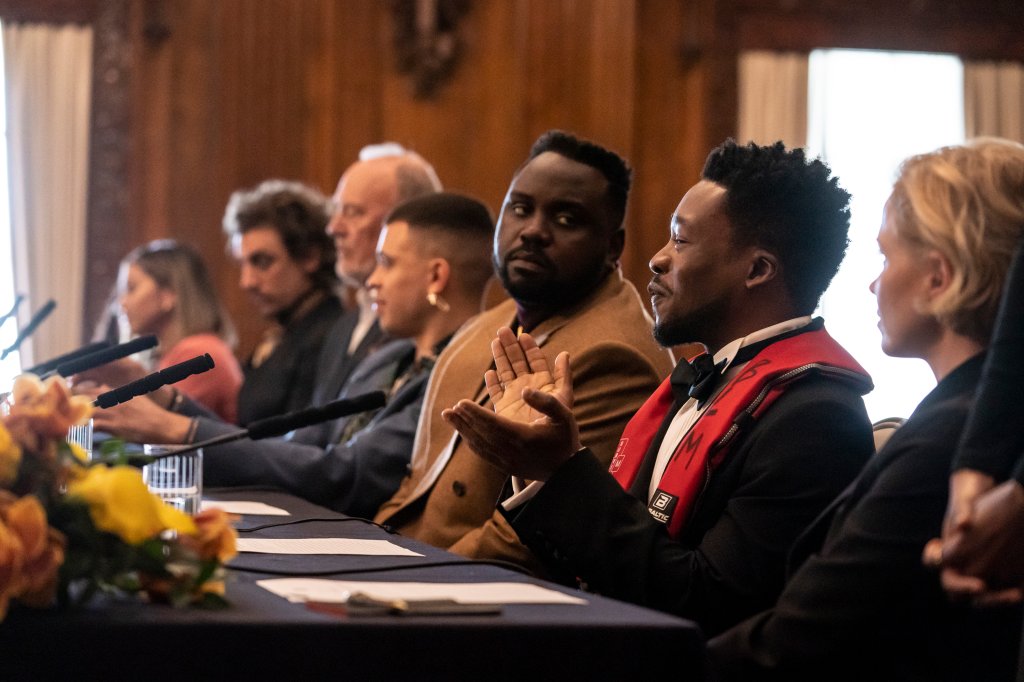
Source: FX Networks / FX
It’s been said that every wise thing in the world today was said earlier. However, sometimes a person or person’s creation can take what we know and present it to us in a way that’s both telling and still explorative. This season of Atlanta, and in particular last week’s episode, “White Fashion,” did just that.
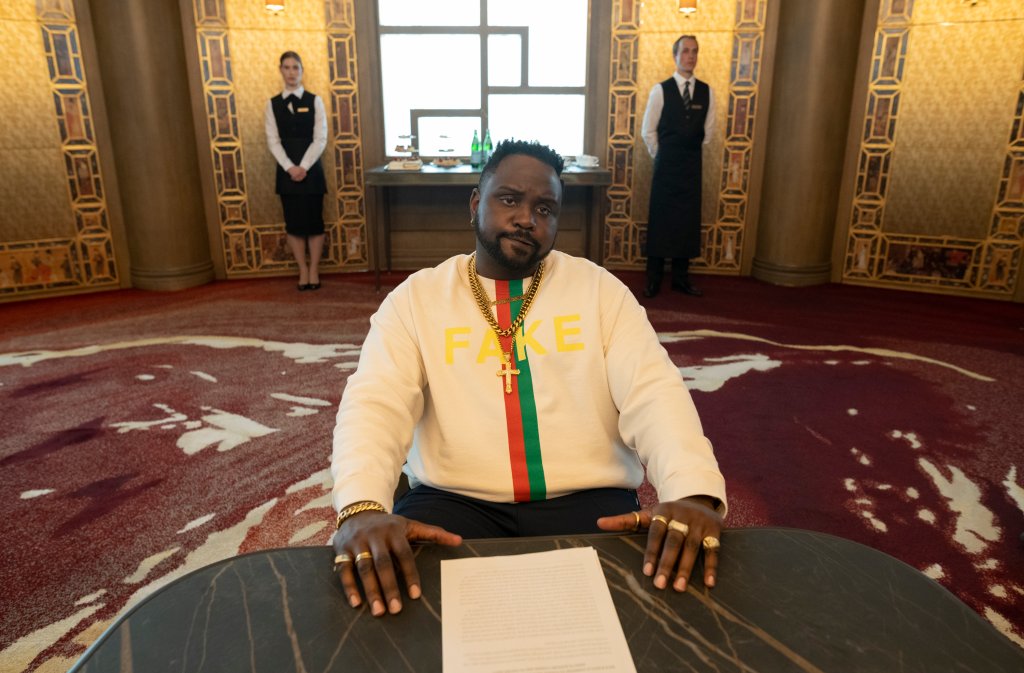
Source: FX Networks / FX
By overtly and covertly shining a light on activism in today’s time, it not only showed the world what’s wrong with the fight for justice but also left clues on how we could correct it.
Without a doubt, the Black Lives Matter movement is the most impactful social justice movement in the last twenty years. What started as a call for humanity has become a pledge of allegiance for some and a slight to others, leaving a line drawn in the sand of who and what to follow. The tension has caused many to invest heavily in the organization, seeing it as one of the last vestiges of hope.
It doesn’t help then when we get articles that suggest that BLM used these donations to fund personal expenditures. It certainly doesn’t help when we hear similar accusations about activists like Shaun King and Deray McKesson who’ve been accused of using Black deaths to elevate their status. Nor does it help when we see our favorite music and fashion moguls advocating for us to shop with brands like Gucci and Moncler despite racially offensive advertisements.
Still, despite so much controversy, few people have been bold enough to address it. The activism for-profit model that Samaria Rice has been vocal about is acknowledged in the most piercing and honest way in this episode.
Atlanta, which has always taken the culture’s biggest issues and analyzed them (Juneteenth, Lake Lanier and Devonte Hart) took the challenge this past week, blending in a healthy dose of satire and wit in their episode. In the episode, a French fashion house uses Paper Boi to help repair its image after a racially insensitive jersey goes out to everyone. The irony of France being the place for the episode considering how much press it’s gotten from some of my favorite rappers isn’t lost on me. Nor is it a coincidence that the company used Black faces to suggest they were moving past racism. The press conference definitely conjures images of Dapper Dan pushing Gucci to address its racist past. “I am a Black man before I am a brand. There cannot be inclusivity without accountability. I will hold everyone accountable,” said Dan in a statement.
To add to the complexity, Atlanta examines white culture’s fascination with co-opting Black culture and gentrifying it for money. Regardless of the show’s setting, you can see it play it out in any major city, especially in Atlanta, where areas like Kirkwood used to stand out like a sore thumb. What’s more important is how the episode discusses black identity dynamics with the exchange between Darius and the store owner Mimi. Mimi’s question about when Darius has been back home examines the judgment African people experience from native Africans who grew up there instead of in America. Her questioning and the awkward energy Darius feels after artfully showing how complex Black culture is.
Most of all, the episode showed how hollow activism is today, exposing how the best intentions often get sidelined, or worse, distorted in favor of a dollar. In the episode, Paper Boi suggests that the group of activists use their money to promote black business investment, telling the group to push the idea of reinvesting in your hood. What happens instead is the fashion house takes the idea and moves it away from blackness. The commercial’s slogan, We Are All From Some Hood, is just another example of how Black talent is mined and exploited for dollars.
But in all the episode’s satire were subtly clues as to how we can move within the system. Earn’s suggestion to join the board, learn the game, and then give it to Black people is noble and offers a chance for possible advancement for us all. But only if actually practiced.
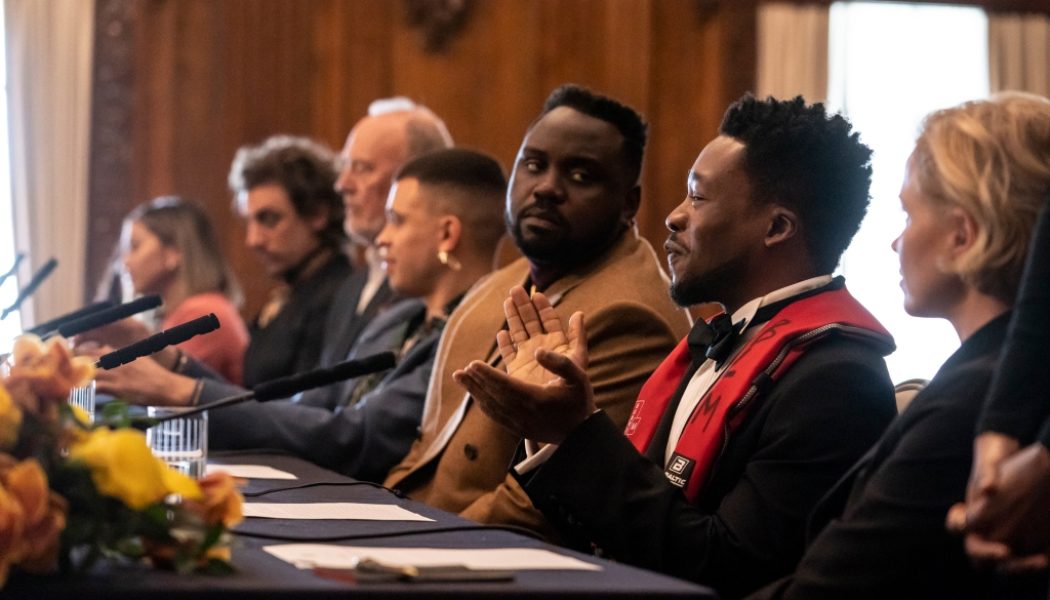

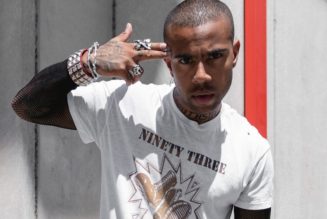




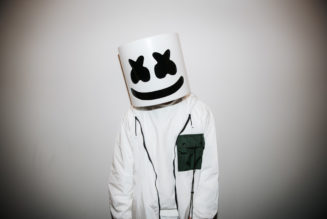
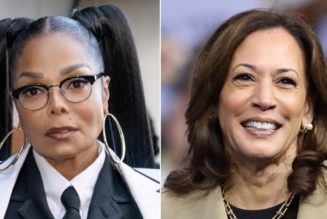

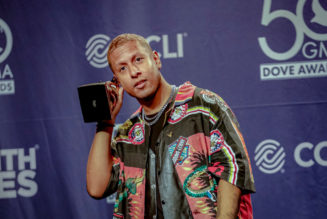
Tagged: atlanta, entertainment blog, music blog, NEWS, Newsletter, race relations, Streetwear